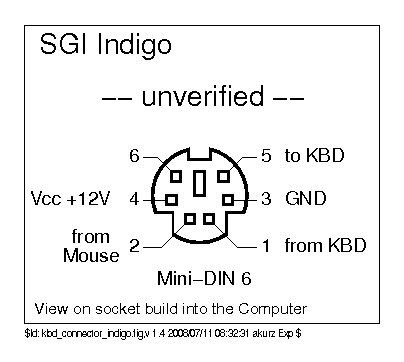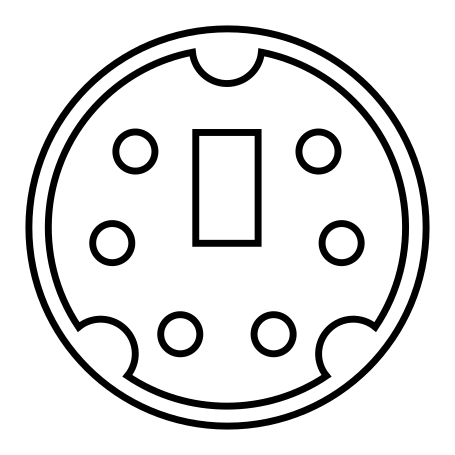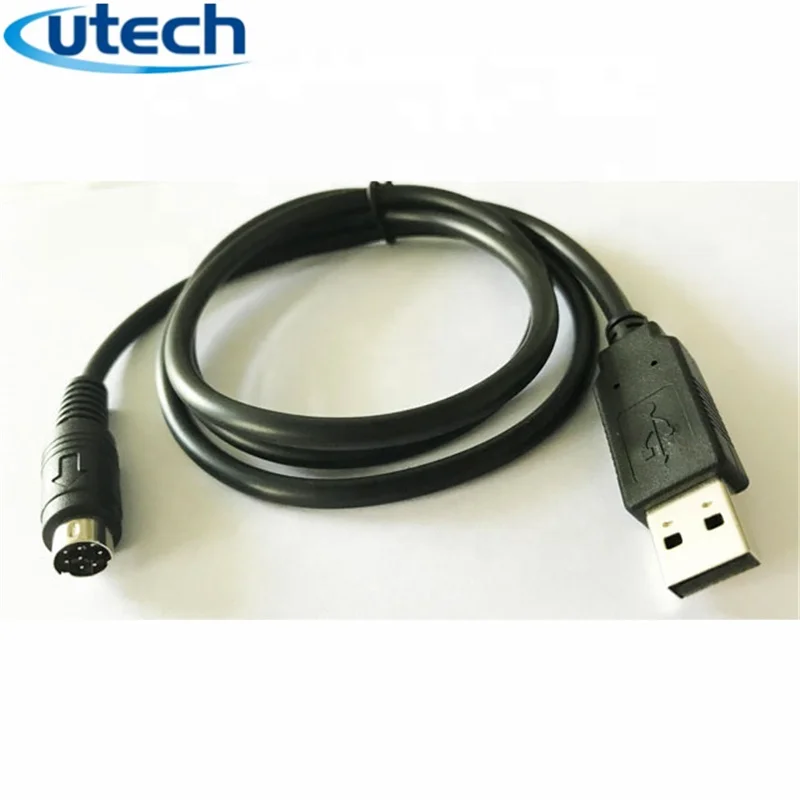This model speaks SGI's own protocol. Quite like Apple ADB keyboards, it has no attached cable but instead a pair of identical ports on the case:
I believe they are this:

12 volts? Not the most helpful thing! Here's the chip responsible: marked SGI as you can see.
Now, that's long put me off doing anything with it. Indeed, this keyboard's been waiting for some attention for years. Annoying, given it's aye a looker, and feels very nice indeed. Even matches my monitor and trackpad! What a tease.
So what to do about it? Well, first of all: the shield has to go. I peeled back its copper tabs the other night.
They didn't cheap out with this thing:
What lies beneath? Why, our good old friends: Alps.
Including an Alps original PCB:
This PCB looks single-sided to me. Here's a peek of the top, and what looks to be a beeper? (Indeed: it is.)
Where are all the diodes, though? Well, I pulled out my flashlight and sure enough: there's dozens of the wee red buggers, tucked away under the plate. Couldn't quite catch them on my phone though, so you'll have to take my word for it!
What I'm thinking, then, is the matrix looks to be all exposed for me on the single exposed side of the PCB. I'll trace it out and figure out the rows and columns. Then I need to pull the SGI controller chip, at least?
There's also the LEDs to think about:
Remember that 12 volts issue. I'll need to watch out how I drive these. I don't mind them a bit dark, fortunately. But getting them lit up from a 5 volt, let alone 3.3 volt battery / wireless controller might be tricky.
I'd also like to use these original ports for connection:
Much like ADB ports, they tuck into the bottom shell here:
Speaking of which, here's the manufacturer marks:
1993 top and 1994 base. Don't think my SGI had much use, given its nice condition. These damped tactile Alps are as good as it gets, in my Alpine experience:
And those pale Granite dyesubs are peak classy, too.
I'm still in two minds about doing anything destructive to this one. But if I ever want to use it, I'm gonna have to, right? For now, I'll map out the matrix and see if there's gotchas awaiting me there.
 vs.
vs. 
